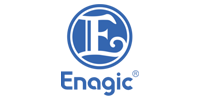Scope
This Code of Ethics deals with relations between:
- direct selling companies and direct sellers on the one part and consumers on the other part;
- direct selling companies and direct sellers; and
- direct selling companies themselves.
Aims
The aims of this Code of Ethics are:
- protection of consumers;
- protection of direct sellers;
- promoting fair competition in the context of free competition; and
- promoting the image of direct selling to the public.
Prohibition to operate pyramid schemes
Direct sellers and companies shall refrain from establishing, operating, or promoting a pyramid promotional scheme where a consumer gives consideration for the opportunity to receive compensation that is derived primarily from the introduction of other consumers into the scheme rather than from the sale or consumption of products.
Further to the pyramid selling ban existing across the EU, DSE adopted in 2013 a list of presumptive elements aimed at helping the consumers and regulators identifying the existence of pyramid schemes. The occurrence of at least two of the following circumstances is indicative of the existence of a pyramid promotional scheme:
- Consumers are obliged to pay a sum of money as a condition to enter the scheme or to continue to participate in the scheme, and they receive nothing in return or only products whose value bears no reasonable relationship to the sum paid.
- Consumers are obliged to purchase the scheme’s products as a condition to enter the scheme and other consumers participating in the scheme are promised or receive compensation derived from such mandatory initial purchases.
- Consumers entering or participating in the scheme purchase the scheme’s didactic or training materials or classes and other consumers participating in the scheme are promised or receive compensation derived from such purchases.
- Consumers leaving the scheme cannot return, for a refund of at least 90% of the original cost, the products or didactic / training materials that are both: (i) unused, undamaged and not past their use-by date; and (ii) purchased within the prior 12 months.
- Consumers are obliged to pay an inordinately large amount of money as a condition to enter the scheme, and the only conceivable way for them to receive compensation equal to or higher than the amount paid is to introduce an unrealistically large number of other consumers into the scheme.
To consult or download a full version of this DSE Code of Ethics please click here.
Printed copies are available free of charge to the public upon request to the DSE Secretariat in Brussels.











